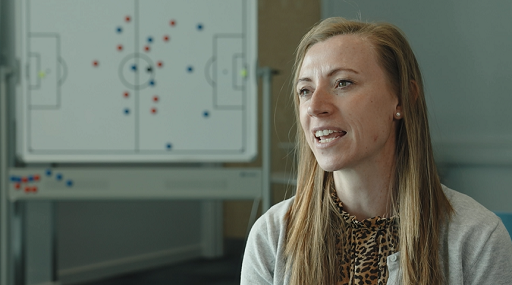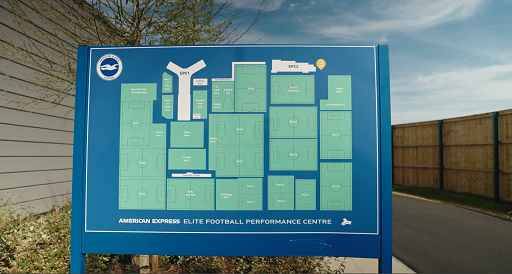4.1 The business of women’s professional football: a club’s perspective
The Women’s Super League (WSL) was formed in 2010. It is the highest level of women’s football in England. In 2018 the league became fully professional, and The Football Association awarded places in the league to clubs who could meet several criteria, such as operating an academy for younger players.
In 2019 Barclays Bank became the title sponsor of the WSL and committed £30m to supporting women’s football. In March 2021 Sky TV and the BBC announced what was described as a ‘landmark’ and ‘game-changing’ broadcasting contract to televise WSL games.
In a period of exciting and rapid growth you will discover how Brighton and Hove Albion, a WSL club since 2018, is managing the process of operating a sustainable professional women’s team.
Activity _unit1.5.2 Activity 7 Exploring women’s professional football
As you watch the video listen to Polly Bancroft, General Manager for Women’s and Girl’s football at Brighton and Hove Albion FC, and identify four business challenges the club are facing.

Transcript: Brighton and Hove Albion FC
[MUSIC PLAYING]
{MUSIC PLAYING]
Discussion
As Brighton develop their women’s team the business challenges they have are:
- Growing attendances at the women’s games and trying to do so through knowing who their potential spectators are.
- Ensuring they are financially sustainable such that their costs do not exceed their revenues.
- Raising the profile of the women’s team and using digital and social media to do so.
- Attracting commercial sponsors specifically to the women’s team and not just mirroring the men’s team.
As Polly mentioned growing women’s professional football presents a business challenge between accelerating the speed of growth while maintaining financial stability and sustainability.
If you’re interested in learning about a women’s football club doing things differently, including being majority owned by women, take a look at the video in the following link: Angel City FC’s story.

